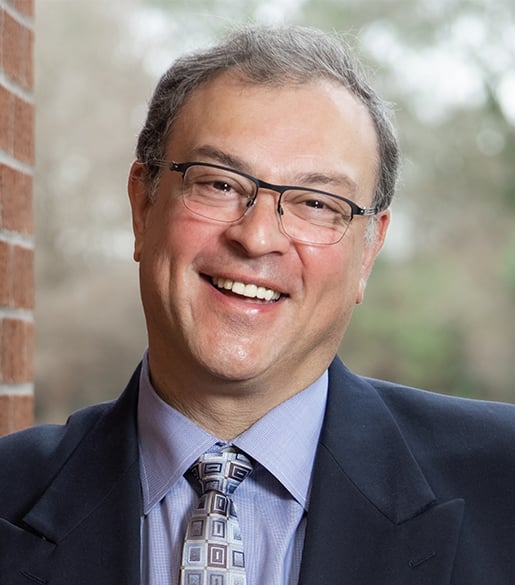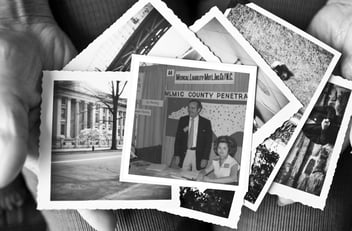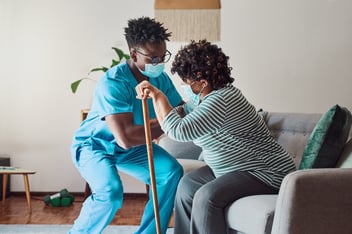Reflections on National Doctors Day

Damian McHugh reminds us all why celebrating our nation’s doctors, especially in the face of ongoing pressures, stressors, and burnout, is more important than ever.
Whether or not you subscribe to the popularity of nationally recognized days or weeks for almost anything you can think of, they certainly do exist for our awareness and consumption. These registered days range from the fun and whimsical (National Spanish Paella Day, anyone?) to the more educational and serious, like National Skin Barrier Day, recently celebrated on March 12, and National Health Workforce Well-Being Day celebrated on March 18. One significant standout, though, and one I am proud to reinforce each and every year is National Doctors Day.
National Doctors Day is celebrated annually on March 30 and honors the numerous and varied contributions of my peers. Notation of it was first made March 30, 1933. It flags the date of the first usage of general anesthesia in major surgery by Dr. Crawford Long, way back in 1842. It became officially recognized as a day of appreciation when George H.W. Bush designated it as such in 1990.
Why celebrate our nation’s doctors and designate a day for them?
Well, firstly they deserve it. Before seeing their very first paying patient, most of these dedicated young individuals give up the best years of their lives to study, to tramp the corridors of hospitals day and night, and to sit and be taught by those they are learning how to help and heal. Delayed gratification and delayed “real earnings” happen in the arduous years of Residency and Fellowship. With debt typically north of $300,000, the nervous first-year attending and newly minted medical graduate sets out on their official career pathway somewhere around age 30.
I typically ask new acquaintances, new business contacts, and new colleagues, “What’s your why?” If you know your why, you will find the how. So many of Curi’s member-owners that I get to spend time with knew they were lightworkers at an early age and wanted to train, learn, invest, and grow themselves into a force for good—for the betterment of our country and our broader humanity.
Over the last quarter millennium, we have seen a darkening of the light that burned in these lightworkers. A jaded response to becoming commoditized. An indignant, actually angry retort to a system where for-profit payers and their pharmacy benefit managers call all the shots and erode the autonomy which we once enjoyed as a profession. Wendy Dean coined the term “moral injury.” She plucked that from military medicine, and so many physician leaders agree with her that this is now endemic and eating away at our healthcare system. The Surgeon General confirmed his agreement of the term in the New England Journal of Medicine in 2022:
“Burnout manifests in individuals, but it’s fundamentally rooted in systems. And health worker burnout was a crisis long before Covid-19 arrived. Causes include inadequate support, escalating workloads and administrative burdens, chronic underinvestment in public health infrastructure, and moral injury from being unable to provide the care patients need. Burnout is not only about long hours. It’s about the fundamental disconnect between health workers and the mission to serve that motivates them.”
The terms depression, burnout, and moral injury are simply constructs of physician distress. They culminate in a dilemma that has no actual solution. The term, “wicked problems,” was coined in the 1960s to describe that class of social system problems which are ill-formulated, where the information is confusing, where there are many clients and decision makers with conflicting values, and where the ramifications in the whole system are thoroughly confusing.
The U.S. healthcare system is plagued with complex inter-related wicked problems. If you don’t or can’t believe me, start following one of the many excellent physician threads on LinkedIn and follow some passionate doctors who care enough to disrupt, but always in a polite and positive fashion.
My message and humble request for doctors as we note National Doctors Day is three-fold:
- Despite the ever-increasing headwinds, please try to do the next right thing. Please strive to serve the patient in front of you and not the insurer on the card they carry.
- Build relationships with both patients and colleagues, to support and enjoy one another. This requires the commitment to make social connection a priority and the courage to be vulnerable and truly real and honest with each other.
- Seek out your County or State Medical Society. Attend specialty society meetings and stay an extra couple of days. Go back to our mosques, synagogues and churches or just to our school halls and ball fields.
In his departing prescription, Surgeon General Dr. Vivek Murthy states, “Today, we are faced with a profound choice. Do we continue with the status quo marked by pain, disconnection, and division? Or do we instead choose a different path, the one of joy, health, and fulfillment where we turn toward each other instead of away from each other, where we choose love over fear, when we recognize community as the irreplaceable foundation for our well-being?” In completing his tenure as Surgeon General, his final wish for all of us was the same as mine: choose community.
Curi is proud to be a vibrant part of your community, and we salute you and your teams on National Doctors Day.
SHARE THIS POST
About the Author









Comments